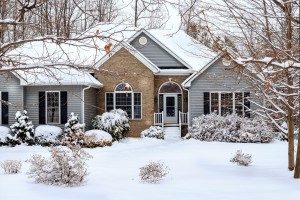
Winter has finally arrived, and the greener days of this past December are long gone. While most of us are entertaining thoughts of keeping warm indoors, with the furnace running smoothly and a mug of something hot in hand, there are a few extra things to remember before getting too comfortable on the couch.
Have you had your annual furnace and fireplace check up?
Changing the filters, cleaning the vents and ensuring all equipment is in good working order is essential for a warm and safe winter season. Nothing ruins a cozy night in at home like a broken furnace and a bitterly cold house!
Have you replaced the batteries in your smoke detectors?
So many tragedies can be avoided with this simple act. Winter brings with it colder temperatures, and the necessity of keeping warm is often mixed with potential fire hazards. Increased usage of electric blankets, space heaters and fireplaces (wood burning, gas powered or electric) may bring with it a risk of fire. While CSA approved models are safe when used properly and according to manufacturer’s instructions, a working smoke alarm is sure to protect loved ones in case of a malfunction.
Do you have a working carbon monoxide detector installed?
Even with proper annual maintenance, it is possible for a furnace or any fuel-burning appliance to malfunction. Carbon monoxide (CO) is an odourless and colourless gas, which is extremely dangerous and can be deadly in large quantities. Even limited exposure to CO can cause headaches, flu-like symptoms, and shortness of breath- any of which can easily be mistaken for another illness. The risk of miss-diagnosing carbon monoxide poisoning is extreme- almost 400 Canadians were killed between 2000 and 2009 by accidental CO exposure. Keep your family and pets safe and eliminate the risk from this ‘silent killer’ with a CO detector.
Are your pipes properly insulated against freezing temperatures?
One frequently overlooked aspect of winter preparation often remains unseen until it’s too late. Water pipes running along outside walls, especially in older homes, can be at risk for freezing in sub-zero temperatures. If pipes are not properly insulated the water inside can freeze, which creates excess pressure inside the pipes. This elevated pressure can cause pipes to burst, resulting in damage to both plumbing and property. Adding foam insulation to exposed pipes and putting up preventative barriers around your home’s foundation are small steps that can prevent huge headaches when a deep freeze hits.
Be safe instead of sorry!
With proper home upkeep and a few simple preventative measures, chances are good you’ll make it through the winter months unscathed. Remember, regular maintenance won’t just keep your home in good condition, it also ensures your insurance premiums won’t climb higher than your snow banks.
